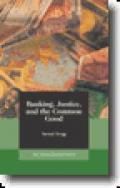


“Let us not forget: we are a pilgrim church, subject to misunderstanding, to persecution, but a church that walks serene, because it bears the force of love.” ― Oscar A. Romero, The Violence of Love
It is no secret to Christians that being one is not easy. However, the public practice of Christianity is ing more and more difficult world-wide. The recent kidnapping of two Orthodox bishops in Syria is but one story of the on-going violence towards Christians in that country. Nigeria was recently cited for its attacks on Christians and Christian churches. Cadida Moss, a professor at the University of Notre Dame, is questioning the existence of Christian martyrs in the early Church. Rather than dying for their faith, she asserts, the stories of martyrs are myths created by a young church eager to establish itself as something worth dying for. Now, John Blake of CNN reports on American Christians as a “hated minority.”
There is talk of “closeted Christians”, in the same way that homosexuals were “closeted” not so long ago: a fear that ing out” regarding one’s conservative Christian faith will leave one ostracized from family, friends, co-workers. Even worse, speaking out about one’s faith is now being labeled as “hate”:
The Southern Poverty Law Center in Alabama is a nonprofit civil rights group bats and monitors hate groups. Three years ago, it designated the Family Research Council, the group that Sprigg represents, as a hate group – a characterization the group stridently rejects.
In the US, much of the debate surrounds homosexuality activity, and whether or not it is a sin. For mainline Christians, the answer is that homosexuality activity is sinful, and they have an obligation to speak up about it. But with society’s widening acceptance of homosexual activity, Christians often find themselves fearful about speaking up. Joe Carter recently wrote at the Gospel Coalition:
“Faux civility, embarrassment, prudishness and a fear of expressing an unpopular opinion has caused many Christians to refrain from explaining how homosexual conduct destroys lives,” Carter wrote.
Of course, it is hard pare being called a bigot to being kidnapped or tortured for one’s faith. However, history shows that the maligning and impugning of a group’s beliefs often precede actual violence. Catholic Cardinal Raymond Burke has stated that he sees a time of persecution for the Church:
Asked if the cardinal could even see American Catholics being arrested for their faith he replied, “I can see it happening, yes.”
In his remarks to several U.S. Bishops meeting with him Saturday, Pope Benedict XVI made similarly emphatic warnings about the U.S. The pope told the bishops that “the seriousness of the challenges which the Church in America, under your leadership, is called to confront in the near future cannot be underestimated.”
He added: “The obstacles to Christian faith and practice raised by a secularized culture also affect the lives of believers.”
In the interview published today, Cardinal Burke declared that “it is a war” and “critical at this time that Christians stand up for the natural moral law.” Should they not, he warned, “secularization will in fact predominate and it will destroy us.”
Open Doors USA is an organization that tracks the persecution of Christians worldwide. One area that they laboriously measure is how free Christians are “to participate in civil society and public life”. Christians are mindful of the men and women who have suffered for the faith, and those who are suffering now. Archbishop Oscar Romero, shot dead while saying Mass, is a reminder that we must continue to practice our faith and uphold our beliefs publicly or we will be forced to practice them privately…or not at at all.









